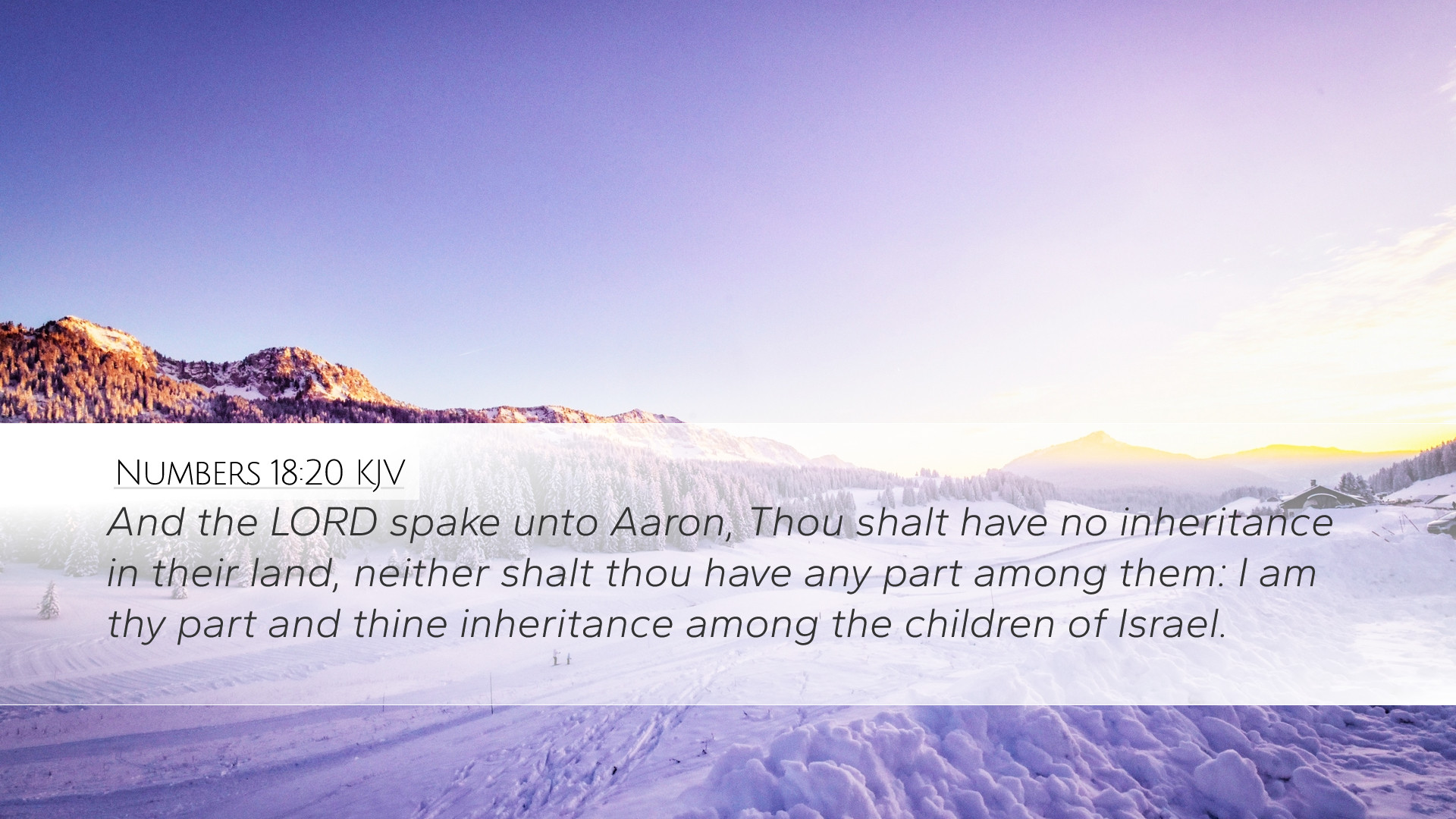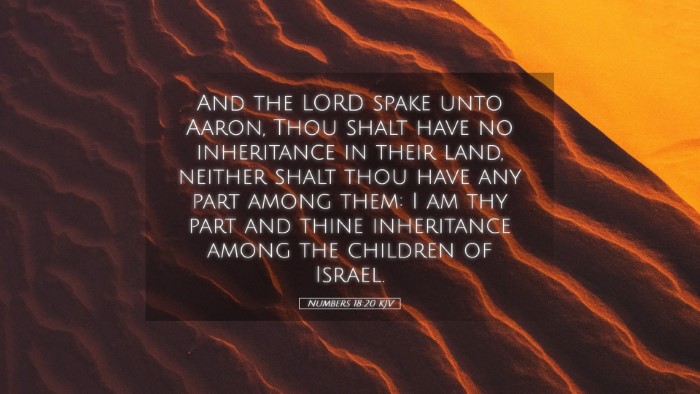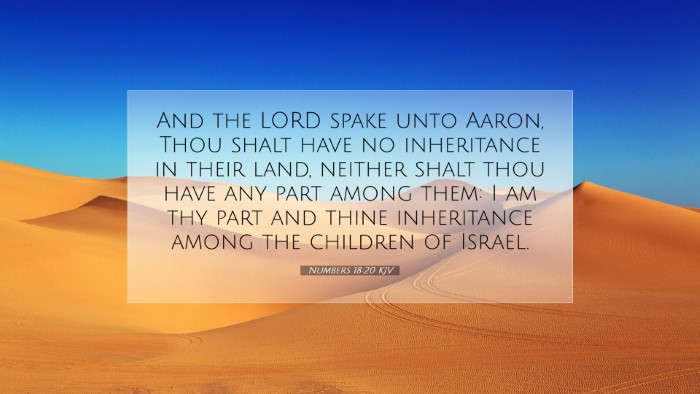Commentary on Numbers 18:20
Numbers 18:20 states: "And the Lord spoke to Aaron: 'You shall have no inheritance in their land, nor shall you have any portion among them; I am your portion and your inheritance among the people of Israel.'
Overview and Context
This verse comes at a crucial juncture in the book of Numbers, outlining the responsibilities and provisions for the Levitical priesthood. It follows God's instructions regarding the duties of the Levites and their unique position within the Israelite community. The sentiment of divine provision expressed in this verse is central to understanding the relationship between God, the priesthood, and the nation of Israel.
Theological Significance
The proclamation, "I am your portion and your inheritance," provides profound insights into the nature of God’s relationship with His servants. The Levites are reminded that their sustenance and blessing do not come from land or earthly possessions but from the divine presence of God Himself. This sets a significant theological precedent about reliance on God over material inheritance.
Matthew Henry's Commentary
Matthew Henry emphasizes the spiritual implications of this order. He notes that by assigning the Levites a life without physical inheritance, God reminded them to depend solely on Him for their provision and state of well-being. Henry posits that this separation highlights a higher calling given to the priests, who must focus on sacred duties rather than earthly concerns.
- Spiritual Education: This calls for spiritual education, encouraging priests to cultivate a direct relationship with God, drawing their strength from Him.
- Symbol of Trust: The lack of inheritance is a symbol of their trust in God’s provision. This encourages all believers to rely on God alone.
Albert Barnes' Insights
Albert Barnes provides a pastoral perspective, underscoring the practical implications of this verse for the clergy. He asserts that the inclusion of the statement about the Lord being Aaron's and his descendants’ inheritance serves as an assurance that God will supply the needs of those dedicated to His service.
- Provision in Service: Barnes notes that God will provide for those who serve Him wholeheartedly, reflecting God's faithfulness to His servants.
- Faith Over Materialism: The verse tensions the common worldly perspective of seeking security in earthly riches, instead advocating for a faith that finds fulfillment in God’s presence.
Adam Clarke's Commentary
Adam Clarke delves deeply into the implications of the covenant established here. He highlights that this divine mandate is both a privilege and responsibility. The Levites are designated to serve in a unique role, entrusted with spiritual leadership without the distractions of land ownership or inheritance.
- Role and Responsibility: Clarke elucidates that their role as spiritual leaders comes with the responsibility of maintaining holiness and guiding the people in their relationship with God.
- Model of Devotion: This provision acts as a model for modern clergy, depicting a lifestyle of devotion that prioritizes spiritual wealth over material possessions.
Implications for Today’s Church
Numbers 18:20 serves as a guiding principle for church leaders and congregations today. The notion that God Himself is our "portion" transcends the barriers of time and speaks to contemporary issues of materialism, ambition, and divine service.
- Ministry Focus: Pastors and church leaders can reflect on their calling, asking if they are focused more on earthly rewards than on fulfilling God’s mandate.
- Community Support: This verse can comfort and encourage church communities to support their leaders, recognizing that their spiritual gifts are of utmost importance for overall growth.
- Encouragement for Generosity: The understanding of priests’ reliance on God should inspire congregation members to be generous, not only in their offerings but also in their spiritual life and communal support.
Conclusion
In summary, Numbers 18:20 carries timeless implications regarding the distinction between earthly and heavenly inheritance. It is a call to prioritize spiritual wealth and reinforces the profound truth that God provides for those who serve Him diligently. This passage serves not only as a foundational teaching for the Levitical priesthood but also as a reminder to all believers regarding their reliance on the Lord as their ultimate provision and inheritance.


